EC’s report on the European University Alliances’ success + what it means for UNICA
06 February 2025 | European Universities - From UNICA

In late January, the European Commission published the “Report on the Outcomes and Transformational Potential of the European Universities Initiative”, offering a comprehensive assessment of the initiative’s progress, achievements, and challenges since its launch in 2019.
The report outlines significant progress made by the alliances in terms of enhancing cooperation in education, research, and innovation. It emphasizes the unique nature of these alliances, which go beyond project-based approaches and focus on long-term structural cooperation. However, while the initiative has shown promising results, the report acknowledges that many alliances are still in their early stages. It emphasizes that their full impact will only become evident over time. A key recommendation is for sustained and increased funding to support these alliances, highlighting the need for strategic integration of resources at European, national, and regional levels to foster an attractive and inclusive research, development, and innovation ecosystem.
Networks and Alliances: different but complementary
An important takeaway from the report is the distinction between European University Alliances and traditional university networks. It states:
“University networks and European Universities alliances are complementary and serve different purposes, the former usually focusing on collective interest representation of HEIs and the latter providing an opportunity for operational transnational cooperation in higher education.”
The report also highlights that university networks have played a crucial role in facilitating partnerships for the European Universities Initiative. Many alliances emerged from per-existing collaborations within networks, which provided a foundation for trust and shared objectives.
Among the networks analysed, UNICA is recognized as a significant facilitator of partnerships. The report finds that 63% of UNICA’s member universities participate in 20 of the 65 European University Alliances. A visual representation of the data underscores the strategic importance of UNICA in bridging institutions across European capitals.
This strong engagement presents both opportunities and challenges for UNICA moving forward.
What does this data mean for UNICA?
Opportunities:
- Strengthening UNICA’s Position as a Bridge-Builder: UNICA’s extensive involvement in alliances reinforces its ability to connect universities from capital cities, facilitating knowledge-sharing and collaboration across institutions.
- Influencing the Future of Alliances: As an established network, UNICA can advocate for policies that support its members, ensuring that the alliances align with broader European higher education goals.
- Leveraging the Initiative for New Collaborations: With many of its members already engaged, UNICA can play an active role in fostering synergies between alliances, particularly in areas like research cooperation, mobility, and digital education.
Challenges:
- Shifting Role of Networks: The report suggests that university networks were crucial in the early stages of alliance formation, but their role in shaping newer alliances appears to be diminishing. UNICA will need to rethink how it adds value beyond partner-matching;
- Ensuring Continued Engagement: With alliances taking on a life of their own, there is a risk that universities focus inward on their alliances rather than on broader network-wide cooperation. UNICA must find ways to keep its members engaged beyond their specific alliances.
- Navigating Funding Constraints: The report calls for more sustained funding for alliances. UNICA can support its members by advocating for policies that secure long-term financial support.
Given the findings of the report, UNICA is well-positioned to:
- Facilitate cross-alliance collaboration, ensuring that members benefit not just from their individual alliances but also from UNICA-wide synergies;
- Provide a strategic platform for discussing the future of alliances, offering insights and policy recommendations based on members’ experiences.
- Advocate for sustained financial support, ensuring that both alliances and networks receive the necessary funding to continue their missions.
In addition to this, UNICA reiterates once again its commitment to strengthen engagement with members not in alliances, ensuring they remain connected to key European higher education discussions and opportunities. It is crucial to ensure that all UNICA members – whether inside or outside alliances – can engage in meaningful international cooperation. UNICA’s long withstanding experience certifies the network is in condition to position itself as a hub for strategic foresight, helping members navigate the evolving landscape of European higher education and identify emerging opportunities. Additionally, UNICA can also facilitate knowledge-sharing between alliance and non-alliance members, ensuring that best practices and innovations developed within alliances are accessible to the wider UNICA community.
In conclusion, leveraging on its experience – but also on the specific characteristics of its members (urban universities, close to governing decision bodies) – there is great potential for UNICA to reinforce its role as a key actor in European higher education, ensuring that it remains a vital network for universities navigating the evolving landscape of international cooperation.
Upcoming
The conversation on the relation between European University Alliances and traditional networks continues during the second edition of UNICA Days. The network’s flagship event that will bring our community back to Brussels to meet stakeholders, partners, and decision-makers for high level discussions around the topic of “The role of university networks in the context of the European Universities alliances”.
The rationale behind this year’s topic lies in the ongoing reflection on how traditional networks – many of which have been created since the late 80s/ early 90s – should position themselves in relation to the EU’s pioneering initiative, the European Universities alliances. The event features discussion panels on education, research, collaboration, pedagogical innovation, and societal engagement, offering a comprehensive reflection on how networks and alliances can complement each other. It also explores the future of the sector and how to leverage the unique profile of our members to drive meaningful impact.


 Co-funded by the European Union. Views and opinions expressed are however those of the authors only and do not necessarily reflect those of the European Union or the European Education and Culture Executive Agency (EACEA). Neither the European Union nor the granting authority can be held responsible for them.
Co-funded by the European Union. Views and opinions expressed are however those of the authors only and do not necessarily reflect those of the European Union or the European Education and Culture Executive Agency (EACEA). Neither the European Union nor the granting authority can be held responsible for them.